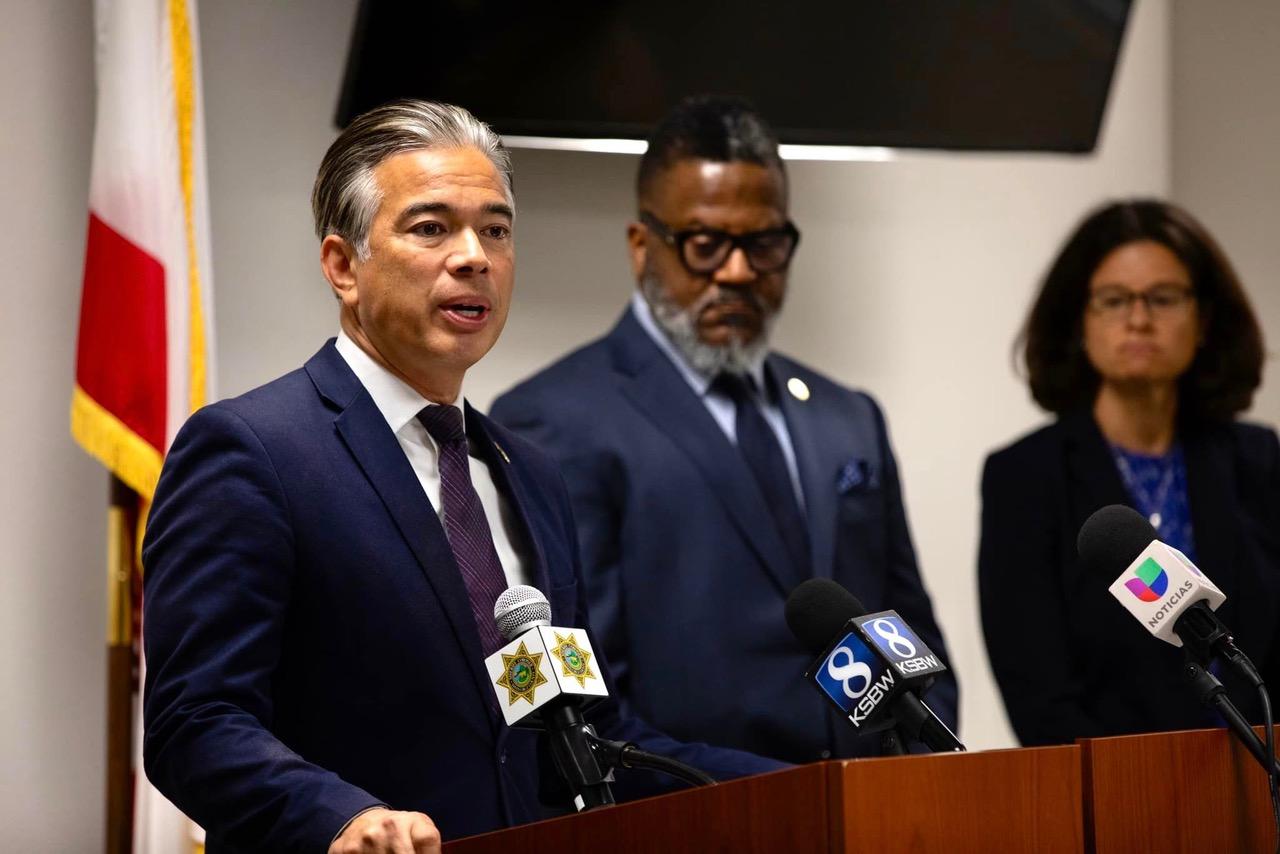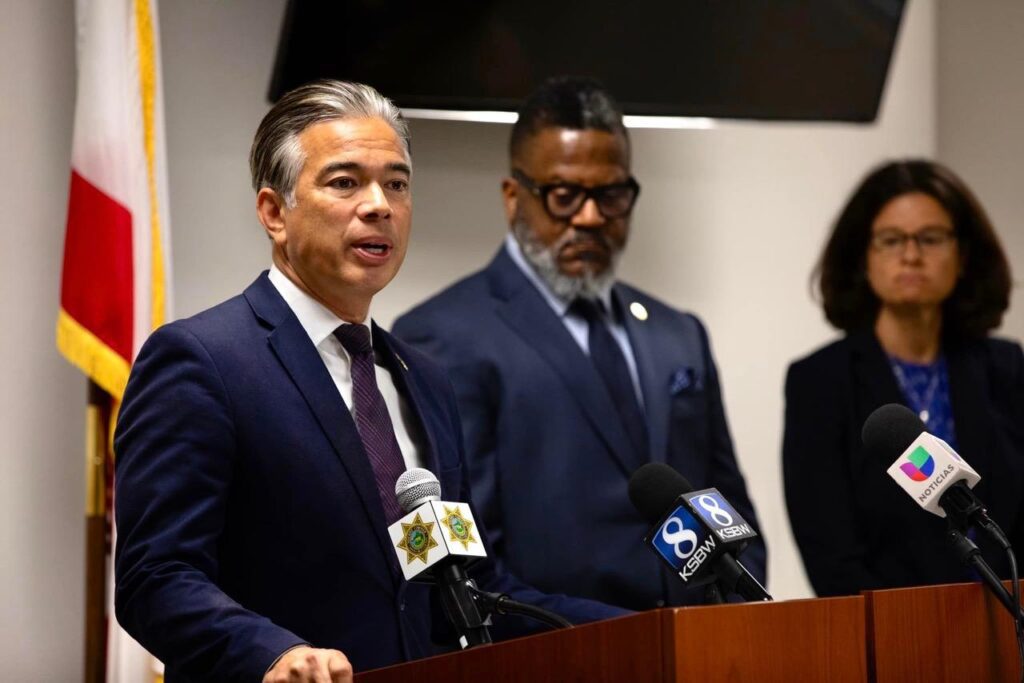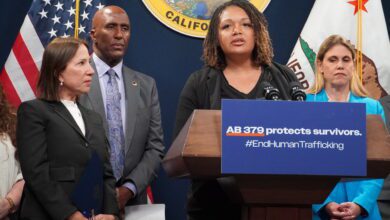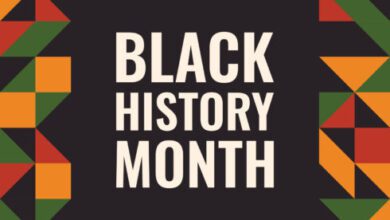Political Playback: California Capitol News You Might Have Missed

By Bo Tefu and Atonio Ray Harvey | California Black Media
U.S. DOT Awards California Nearly $150M for EV Charging and Fueling Infrastructure

Attorney General Rob Bonta (AG Facebook Page)
The United States Department of Transportation has awarded $149.7 million to California to build its zero-emission vehicle charging and fueling infrastructure, Sen. Alex Padilla (D-Calif.) announced last week.
“Decarbonizing the transportation and goods movement sectors is essential for fighting the climate crisis and protecting public health in communities along busy corridors,” said Padilla.
The funding includes $100 million for medium and heavy-duty zero emissions vehicles. The funding is being managed by the Charging and Fueling Infrastructure Grant Program under the Federal Highway Administration (FHA).
The federal agency was created by the bipartisan infrastructure law to fund development projects. The state’s Department of Transportation will receive $102.4 million for its West Coast Truck Charging and Fueling Corridor Project. The charging and fueling stations will be developed for zero-emissions medium
and heavy-duty vehicles along 2,500 miles of key freight corridors in California, Oregon, and Washington. The project aims to transport goods between major ports and freight centers and agricultural regions along the West Coast.
Several Democratic leaders urged U.S. Secretary of Transportation Pete Buttigieg to support the zero-emissions project. The Charging and Fueling Infrastructure Grant Program also aims to deploy electric vehicle charging and fueling infrastructure in publicly accessible locations to help underserved and disadvantaged communities.
“To successfully meet California’s critical climate goals, we need to scale up our charging and fueling infrastructure up and down the state through transformative projects like the West Coast Truck Charging and Fueling Corridor Project,” Padilla added.
Additional government agencies and organizations in California were awarded up to $15 million to invest in sustainable transportation infrastructure. They include the Fort Independence Indian Community, the Los Angeles County Metropolitan Transportation Authority, the San Francisco Bay Area Rapid Transit District, and the Shingle Springs Band of Miwok Indians.
San Diego County Board of Supervisors Backs Reparations Bills
The San Diego Board of Supervisors last week voted 4-1 to back State legislation that aims to right historic injustices against the descendants of enslaved Black people.
The State Legislature is working with the California Legislative Black Caucus and reparations taskforce to provide reparations to Black people who were harmed by systemic racism and other inequities. Community leaders and activists praised the county supervisors for supporting the initiative and stated that their endorsement is a significant step forward in correcting past injustices.
With that vote, San Diego will be listed as a formal supporter of the reparations bill package, a series of 14 bills still in progress at various stages in the State Legislature.
Supervisor Joel Anderson, a Republican, was the only County Board member who voted against endorsing the state’s reparations initiative.
Supervisor Monica Montgomery Steppe, who served on the state’s reparations task force, said that the bills would directly impact San Diego.
“It is no secret that our county carries the stain of historical racism and discrimination against the Black community,” said Steppe.
“As a member of the reparations task force, it’s my obligation to support and uplift policies that address the multifaceted dimensions of this history,” she said.
Ellen Nash, chair of the San Diego Chapter of the Black American Political Association of California, recalled personally experiencing racial injustice and wants to protect future generations from the harmful impact of systemic racism and discriminatory practices.
“This package provides a comprehensive approach to addressing the root causes of inequity and building a more inclusive future for all,” said Nash.
“There is hope for the next generation,” she said.
California Assembly Passes Sex Trafficking Bill
A bill Sen. Shannon Grove (R-Bakersfield) authored addressing sex trafficking and aiming to increase penalties for those who purchase children for sex made it
out of the Assembly with a 73-0 vote one day before the final day of the Legislative session.
Senate Bill (SB) 1414, titled “Crimes: Solicitation of a minor,” would apply to defendants who are 18 years of age or older at the time of the offense. Senators Anna Caballero (D-Merced) and Susan Rubio (D-Baldwin Park) are co-authors of the bill.
“By increasing penalties for those who solicit or purchase children for sex, we are sending a clear message: California’s children are no longer for sale,” Grove stated. “While I am disappointed in the forced amendments that excluded some minors, I am pleased with this step forward. We know there is still work to be done and I will continue to fight to protect all children.”
According to SB 1414’s language, if the person solicited for sex was under 16 years of age, or if the person solicited was under 18 years of age at the time of the offense and the person solicited was a victim of human trafficking, the offense would be punishable as a “wobbler,” meaning prosecutors can either charge the suspect with a misdemeanor or a felony.
Gov. Gavin Newsom has until Sept. 30 to sign the bill into law or veto it.
California Legislature Clears Cyberbullying Bill
On Aug .29, the California Assembly voted to pass a bill that would require social media platforms to respond to reports of cyberbullying by either removing the content in question or explaining why it is aligned with their platform’s policies,
The bill passed on the Assembly floor with a 71-0 vote.
Titled Cyberbullying Reporting and Accountability, SB 1504,authored by Sen. Henry Stern (D-Calabasas), advanced to Gov. Gavin Newsom desk for his signature or veto.
“Cyberbullying is a deadly and growing crisis. Social media companies must do their part to respond to cyberbullying threats, like the fight pages that led up to Shaylee Mejia’s death,” Stern said in a statement to California Black Media.
Mejia, 16, died from blunt force trauma to the head, according to a Los Angeles County medical examiner who ruled her death an accident, citing that she fell down a flight of stairs. The family believes her death was caused by a fight at school that was captured on video.
SB 1504 is designed to have social media platforms such as Instagram, TikTok, Facebook, and others “respond compassionately and predictably” to reports of cyberbullying, Stern said in April.
According to the California Department of Justice (DOJ), Black and Hispanic teens are more likely than their White counterparts to be targets of cyberbullying. In addition, Black teens are about twice as likely as Hispanic or White teens to express that their race or ethnicity made them a target of online mistreatment, according to a 2002 survey by the Pew Research Center.
If signed into law, SB 1504 will not require the Attorney General on behalf of all Californians to bring enforcement actions. Instead, it allows any person who reports cyberbullying and does not receive a timely response to enforce their own rights.
“Schools, students’ and parents’ complaints about cyberbullying often fall on deaf ears with the social media giants. This bill takes the power back,” Stern stated.
California Passes Bill Banning Discrimination Based on Hair Styles, Texture
On Aug. 27, the State Legislature passed Assembly Bill (AB) 1815, a law that bans hair-based discrimination related to race, making its way to Gov. Gavin Newsom’s desk for a final signature.
This bill seeks to expand the state’s civil rights laws to include protections based on hairstyles and hair texture such as locks, braids, and twists, and protective hairstyles that are popular among Black people. California was one of the first states to enact laws that protect people from discrimination in schools and employment under the CROWN Act in 2019. According to the Economic Policy Institute, Black women’s hairstyles are 2.5 times more likely to be perceived as unprofessional as compared to those of White women.
The CROWN Workplace Research Study revealed last year that 66% of Black women change their hair for a job interviews — most of them from curly to straight to appear more professional.
AB 1815 is one of 14 reparations bills introduced by the California Legislative Black Caucus (CLBC). The bills were based on recommendations in the final report published by the California Reparations Task Force in 2023.
The task force recommended more than 100 policy proposals that promote racial justice and justify reparations.
Assemblymember Akilah Weber (D-La Mesa), the newly elected chair of the CLBC, authored AB 1815.
“We have changed a harm that has been given to people for generations that stated that beauty only occurs if you look a certain way if your hair is only a certain way,” said Weber. “This particular bill repairs that harm.”
Weber acknowledged that AB 1815 was one of the least controversial in the 14-bill package. Although the bill was amended a few times, it faced minimal opposition from lawmakers.
California Passes Reparations Bill to Rectify Racist Land Seizures
Senate Bill (SB) 1050 has moved to Gov. Gavin Newsom’s desk after it passed the State Legislature, as part of a 14-bill reparations package introduced by the California Legislative Black Caucus (CLBC).
The bill authored by Sen. Steven Bradford requires the state to create a process that will review claims from people who lost property through racially motivated eminent domain.
The language in the legislation requires the state to review valid claims and compensate eligible Black residents. Both
Republican and Democratic lawmakers passed the final version of SB 1050 without opposition.
Sen. Brian Dahle (R-Bieber) acknowledged that forcefully taking private property under eminent domain caused harm to families across California.
“The only time that property should be taken is through eminent domain, and it should only be used for a public good — for schools, roads and those types of situations,” said Dahle.
“If it’s been taken in any other way, that’s unjust, and it should be rectified,” he said.
The CLBC partnered with the California Reparations Task Force in efforts to reclaim land taken from Black residents under racist laws in the past. Community leaders and Black residents launched campaigns for the return of land or equitable compensation for properties seized by the government such as Bruces’s Beach in Southern California.
However, Sen. Roger Niello (R-Fair Oaks) opposed the bill arguing that local jurisdictions that used eminent domain in racist ways are responsible for providing compensation, not state taxpayers.
Sen. Bradford responded that the state review process will also require local jurisdictions to compensate Black residents in addition to the state.
“Local jurisdictions will be responsible if they played a direct role,” said Bradford.
Study: Black And Latino Voters Unite at Ballot Box
When it comes to voting, solidarity among communities of color remains strong despite political and cultural differences, according to a research study by the University of California, Los Angeles.
The research study revealed that voters of color in California are inclined to vote for Vice President Kamala Harris in the upcoming presidential election. The research findings showed that Black, Asian, Latino, Middle Eastern, and North African voters tend to vote for candidates who support policies that address racial injustices against all groups.
The study also attributed these voting habits to the similarity principle, a tendency of human beings to like others who are similar to them. A prime example is when Black people read about how Latinos were treated as second-class citizens, an experience that Black people could relate to regarding discrimination in the country. Moreover, Latinos could relate to
Asians being labeled as foreigners in America, an experience shared by many Latinos nationwide.
The UCLA research study of the previous presidential election was conducted by Efrén Pérez, a professor of Political Science and Psychology at the university.
Pérez stated that “shared experiences of discrimination between groups that do not share a cultural identity can be used as a lever to facilitate positive intra-minority intergroup relations.”
In the past, presidential elections have proven that voters of color are crucial, pushing candidates to mobilize Black and Brown voters as part of their campaigns. Various polls speculated that former President Donald Trump is expected to win more Black votes and gain more support among Latinos despite anti-immigration policies.
However, another recent poll by the Pew Research Center showed that 77% of Black voters support Harris and only 13% support Trump.
The UCLA research study indicated that similar forms of discrimination experienced by each group can help voters of color form a political coalition.
“Both blatant and subtle connections to shared experiences of discrimination, or inducing a similarity-seeking mindset in the
context of discrimination faced by one’s ingroup, increased support for policies benefiting the outgroup and reduced intergroup bias,” stated Pérez in the research report.
In the research study, voters of color discussed issues of affirmative action, immigration, and reparations highlighting the impact of these topics. However, the study stated that these issues can raise conflict among the different groups, a divisive tactic that politicians can exploit to gain favor from each group.
The research study showed that the various forms of discrimination faced by each group have helped build solidarity among voters of color, an advantage that can politicians win at the ballot box.
California Legislature Passes Law to Protect Incarcerated Pregnant Women
The California Senate recently approved a package of bills that expand protections for pregnant women who are incarcerated. Those bills are now awaiting final approval in the Assembly before moving to Gov. Gavin Newsom for his consideration.
Among the proposed bills, is Assembly Bill (AB) 2527 law that bans pregnant women and women up to 12 weeks postpartum from being placed in solitary confinement. However, the exception is if “there is a credible and imminent threat to the
safety or security” of the woman. The legislation requires that pregnant women receive daily portions of clean bottled water and meals that meet nutrition guidelines under the Special Supplemental Nutrition Program for Women, Infants, and Children. Another bill requires pregnant women to be referred to a social worker within one week of entering prison to talk about options for parenting classes. Additionally, the bills would require postpartum mothers to stay at a medical facility as recommended by a medical provider.
State lawmakers also proposed a bill that would reduce the number of empty state prison beds by 2030. The bill was introduced as a cost-effective measure that aims to cut costs and save the state money during a tough budget year. The bill is pushing for the state to close down more prisons to push back on mass incarceration that disproportionately affects Black people.
Currently, the state has approximately 15,000 empty prison beds costing the state millions annually to maintain the beds. The proposed bills would gradually reduce the number to 2,500 beds in the next six years, paving the way to close state prisons in the future.
Bonta Pushes for Gender Equity in Consumer Good Prices
Attorney General Rob Bonta issued a consumer alert reminding residents to know their rights under Assembly Bill 1287 for Women’s Equality Day on August 26.
State law prohibits businesses from charging different prices for substantially similar goods based on the gender of the product’s target audience. The law protects consumers from the “pink tax,” a label used to describe the practice of charging women higher prices than men for the same or similar goods.
According to consumer data, products marketed to women cost 7% more than those marketed to men. The average cost of personal products is 13% higher for women compared to men. The bill authored by Assemblymember Rebecca Bauer-Kahan (D-Orinda) was enacted to prevent gender-based price differences that violate the law.
Bonta condemned the pink tax and encouraged consumers to report businesses that have violated this law.
“The Pink Tax is a sexist practice that is illegal in California. Women, especially Black and Latinx women, are paid less than their White, male counterparts in the same roles, yet have to spend more than men to buy very similar products,” said Bonta.
“California consumers have the right to shop without fear of discrimination,” he said.
Bauer-Kahan stated that the majority of products are gender -targeted. With this law, the state is working to close the
unnecessary and burdensome gaps of gendered pricing to promote gender equality.
“It has been two years since the passage of AB 1287, and it is very exciting to see the work Attorney General Bonta is doing to guarantee consumers rights under California’s Pink Tax Law. Unequal prices for women translate to impacts for their own financial well-being as well as that of their families. This also exacerbates the already-existing gender gap in financial inequality,” she said.
The bill is supported by the California Commission on the Status of Women and Girls which cosponsored AB 1287. Since the passing of the pink tax law, supporters of the bill argued that unequal pricing translates into unjust and harmful financial impacts for women and girls given the issue of gender pay gaps. The practice of pink tax further widens wealth inequality by disproportionally affecting women of color statewide.



